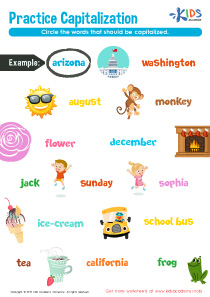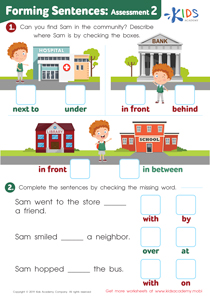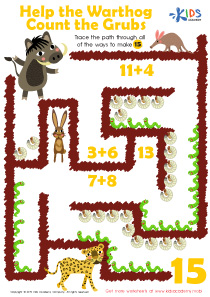Word Recognition Normal Kindergarten Tracing Words Worksheets
4 filtered results
-
From - To
Enhance your kindergarteners' reading skills with our engaging Word Recognition Normal Kindergarten Tracing Words Worksheets. Designed to foster early literacy, these printable resources provide a fun and interactive way for young learners to recognize and trace essential words. Each worksheet helps children develop fine motor skills while reinforcing vocabulary literacy. With vibrant visuals and age-appropriate content, kids will enjoy improving their handwriting and word recognition simultaneously. These worksheets support early educators by offering high-quality materials that align with learning standards. Download our Word Recognition worksheets today and help your students build a strong foundation for their reading journey!
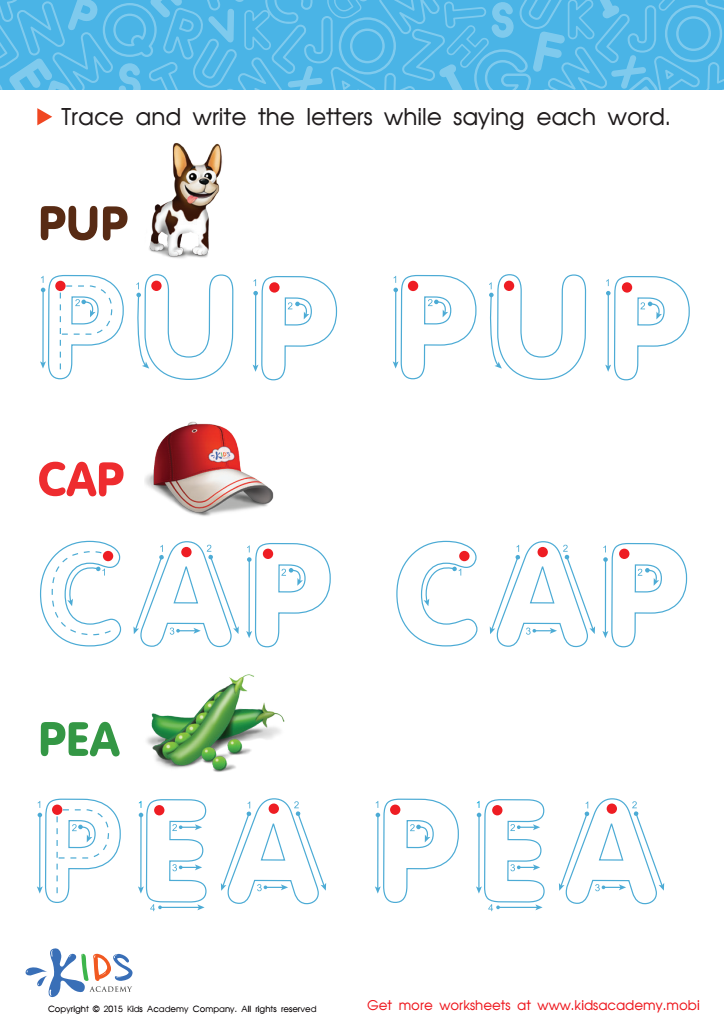

A Pup, a Cap and a Pea Spelling Worksheet
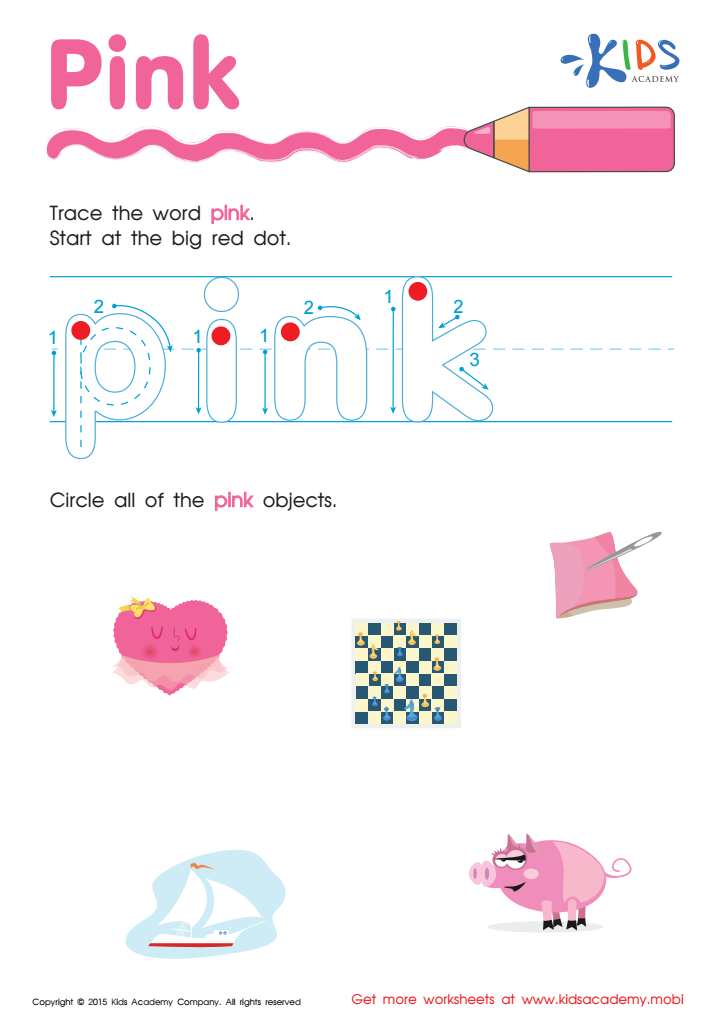

Pink Tracing Color Words Worksheet
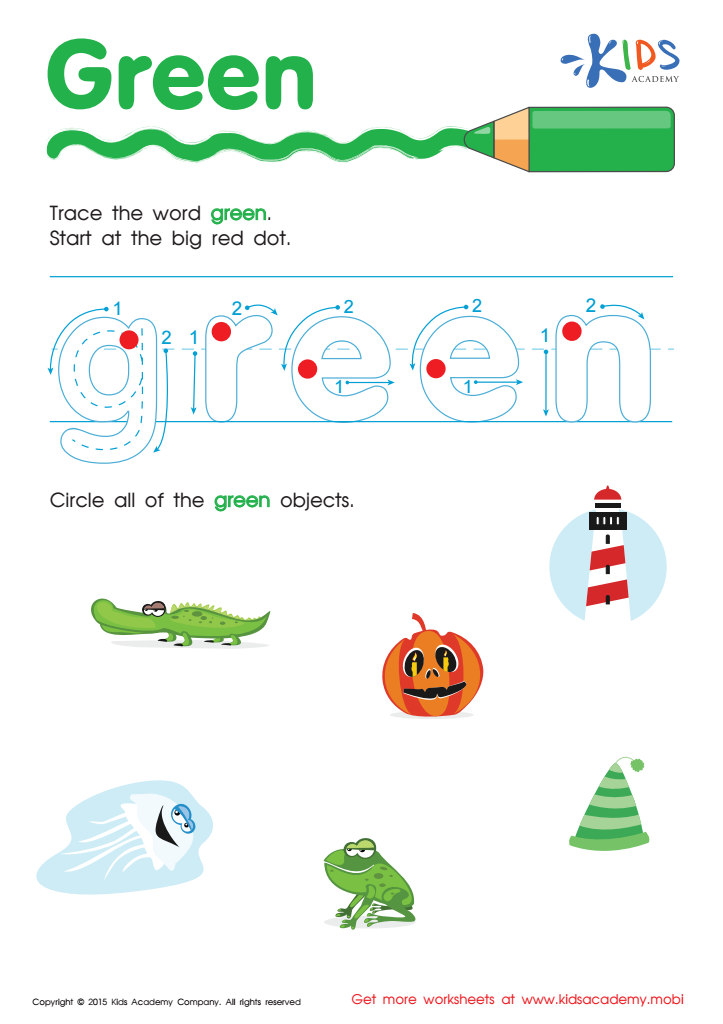

Green Tracing Color Words Worksheet
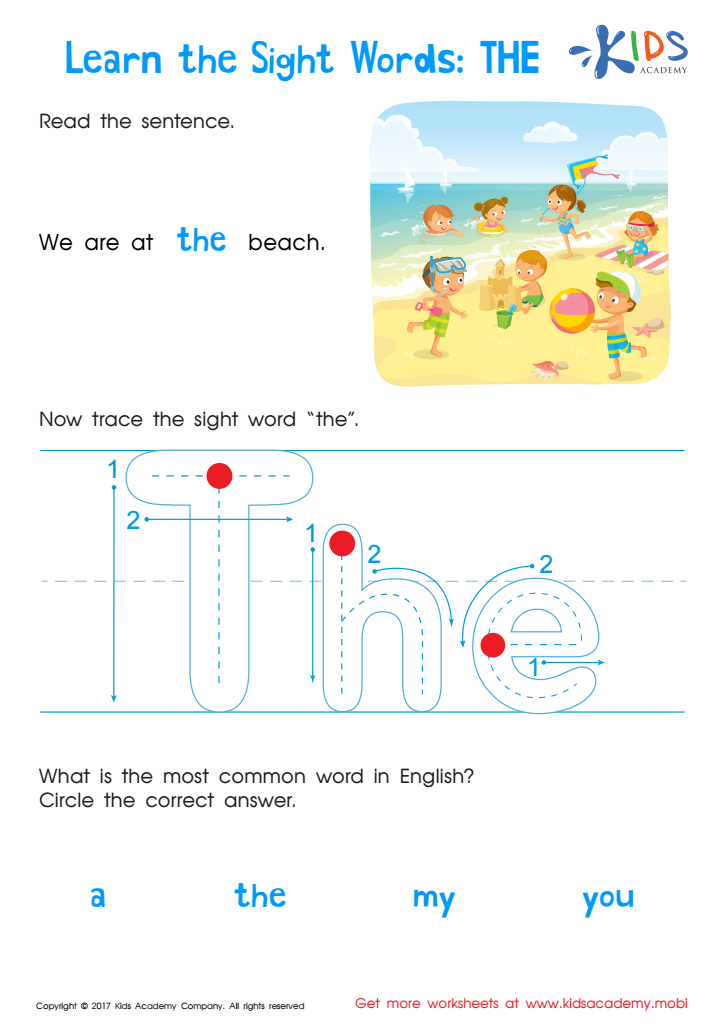

Sight Words: The Worksheet
Word recognition is a fundamental skill that forms the backbone of literacy development in early learners, making it crucial for parents and teachers to prioritize activities like tracing words. When children engage in tracing words, they don't just learn to recognize familiar words; they also develop fine motor skills and muscle memory, which enhance their handwriting and spelling abilities. This hands-on activity encourages children to connect letters with sounds, known as phonemic awareness, paving the way for reading fluency.
Moreover, tracing words helps build vocabulary by exposing children to new words in a meaningful context. By engaging in this activity, children gain confidence in their ability to read and write, setting a solid foundation for more advanced literacy skills. Early engagement in word recognition also correlates with improved academic outcomes as they progress through their education.
Parents and teachers who emphasize word recognition through tracing words contribute to a supportive learning environment that fosters exploration, creativity, and a love of reading. As children gain proficiency in word recognition, they embark on a lifelong journey of learning, critical thinking, and comprehension, making the interest and investment of adults matter significantly in their cognitive and communicative development.
 Assign to My Students
Assign to My Students







